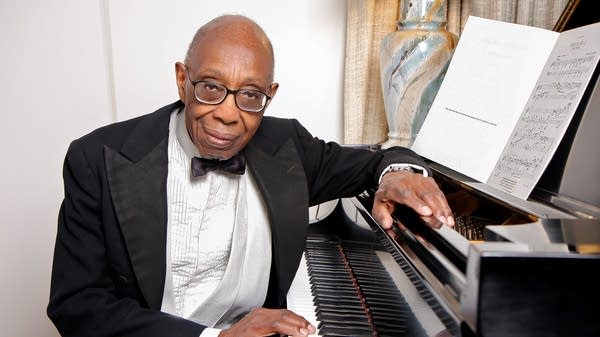American composer George Walker died in 2018 at 96, but it’s never too late to learn about his amazing legacy and contributions to American music.
One of the first things people remember about Walker is that he was the first Black American to be awarded the Pulitzer Prize in music for his composition Lilacs. While this is no small achievement, the legacy of Walker is richer and more astonishing than most people know.
After starting piano at 5, Walker enjoyed and practiced music during his youth that contributed to him receiving a scholarship to Ohio’s Oberlin College, where he studied piano. After completing his undergraduate studies there, he became the first Black graduate of the Curtis Institute of Music, leaving with diplomas in piano and composition. His teacher was Rosario Scalero, who also taught Samuel Barber.
Walker would go on to have many other firsts, including becoming the first Black instrumentalist to perform with the Philadelphia Orchestra; the first Black instrumentalist to sign with a major management firm, National Concert Artists; and the first Black recipient of a doctoral degree from the Eastman School of Music.
Here’s a movement from his Sinfonia No. 3.
Sinfonia No. 3: quarter note = 76
Walker loved mythology, and many of his works reflect that. Here are two works, Icarus in Orbit and the first three parts from his song cycle Orpheus, that display his immense talent in his ability to re-create written stories with music. Both works vividly and passionately tell their stories in a way that only Walker could have created.
Icarus in Orbit
Orpheus
Part I
Part II
Part III
Over the span of his career, he composed more than 90 pieces. Many are solo piano or large orchestral pieces, but a few are concertos. He wrote for the cello, violin and organ, but one of his most performed concertos is for the trombone.
Concerto for Trombone and Orchestra: I. Allegro
Sinfonia No. 5 (Visions) was Walker’s last work. It was written in response to the Emanuel African Methodist Episcopal Church shooting that happened in 2015 in Charleston, South Carolina. It shows that no matter where he was in his career, he was deeply connected to Black Americans throughout the country and continued to stay relevant to fight for racial justice and equity.
Sinfonia No. 5 (Visions)
Walker was unyielding when it came to conforming to a specific style by always drawing from his diverse knowledge and music-filled upbringing. He incorporated styles that included jazz, popular music, 12-tone, spirituals and folk songs to make a sound that was all his own.
Musicologist Eileen Southern said in her groundbreaking work The Music of Black Americans: “His mature style was distinctive for its fusion of contemporary elements, including surrealism, with a predilection for classical forms — this combination with rhythmic complexities and concern for melodic expressiveness. His music reflects the influence of jazz and Black folk idioms, sometimes obviously, sometimes subtly.”
Love the music?
Show your support by making a gift to YourClassical.
Each day, we’re here for you with thoughtful streams that set the tone for your day – not to mention the stories and programs that inspire you to new discovery and help you explore the music you love.
YourClassical is available for free, because we are listener-supported public media. Take a moment to make your gift today.

